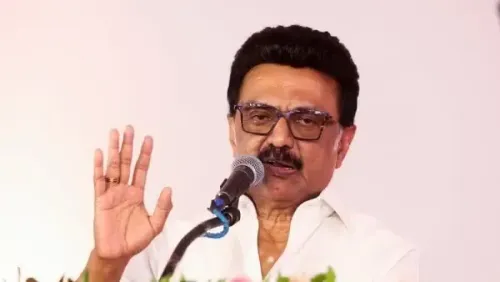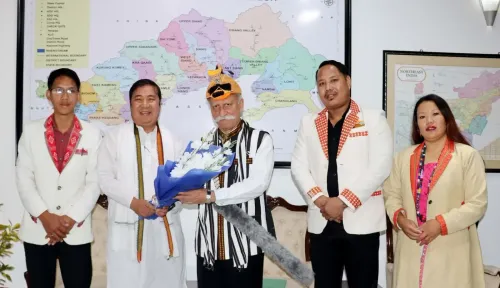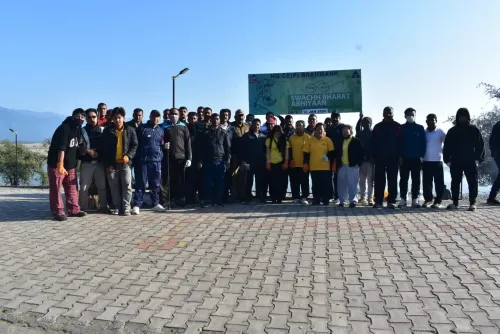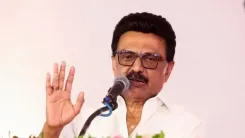Should the Opposition Avoid Appeasement Politics?
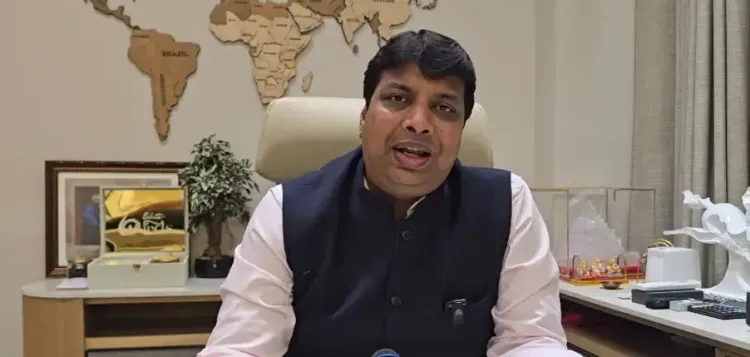
Synopsis
Key Takeaways
- Rohan Gupta criticizes the Opposition for appeasement politics.
- The poster controversy exemplifies divisive tactics in politics.
- Gupta advocates for coexistence of different sentiments.
- India's Global Innovation Index ranking reflects significant progress.
- Political dialogue should focus on unity rather than division.
Ahmedabad, Sep 26 (NationPress) As tensions escalate surrounding the 'I Love Muhammad' and 'I Love Mahadev' poster controversy, BJP spokesperson Rohan Gupta took a stand against the Opposition, labeling it a blatant example of appeasement politics. He called on opposition parties to avoid actions that sow discord within communities for the sake of electoral advantage.
In an interview with IANS, Gupta expressed, “This whole situation is a striking illustration of the roots of appeasement politics in our nation. Initially, a contentious statement or act is made, followed by a counter-reaction, and finally, unnecessary objections arise. There are individuals in this country who admire Muhammad, and there are those who revere Mahadev. Why politicize these sentiments?”
He further stated, “The Opposition must cease their tactics of appeasement politics. Such strategies are ineffective. The sentiments of 'I love Muhammad' and 'I love Mahadev' can exist in harmony. The Opposition must stop provoking divisions disguised as religious identity.”
Responding to AIMIM Chief Asaduddin Owaisi’s critique of the Rashtriya Janata Dal (RJD) over their silence regarding a potential pre-election alliance, Gupta remarked, “Observe their political behavior; it is grounded in division and vote-bank strategies. Occasionally they speak of ideology, and at other times of safeguarding the Constitution or advocating for Muslim women’s rights. However, when it comes to actual seat allocation and alliances, they disintegrate. What happens to their so-called ideology then?”
Shifting gears to India's international standing, Gupta commented on the nation’s ascent to the 38th position in the Global Innovation Index 2025, a significant rise from the 81st position in 2015.
“Those who falsely criticize India’s developmental and economic strategies, labeling it a ‘one-and-a-half economy,’ must confront reality. This is a resounding blow to their assertions. The Global Innovation Index evaluates nations based on research and innovation. India now stands as a leader in South and Central Asia. What more evidence do critics require?” he asserted.
India has notably enhanced its innovation performance, achieving 38th place in the Global Innovation Index (GII) 2025, as reported by the World Intellectual Property Organisation (WIPO). This ranking marks an improvement from its 2020 position of 48, and importantly, places India among lower-middle-income economies in the Central and Southern Asia region.


